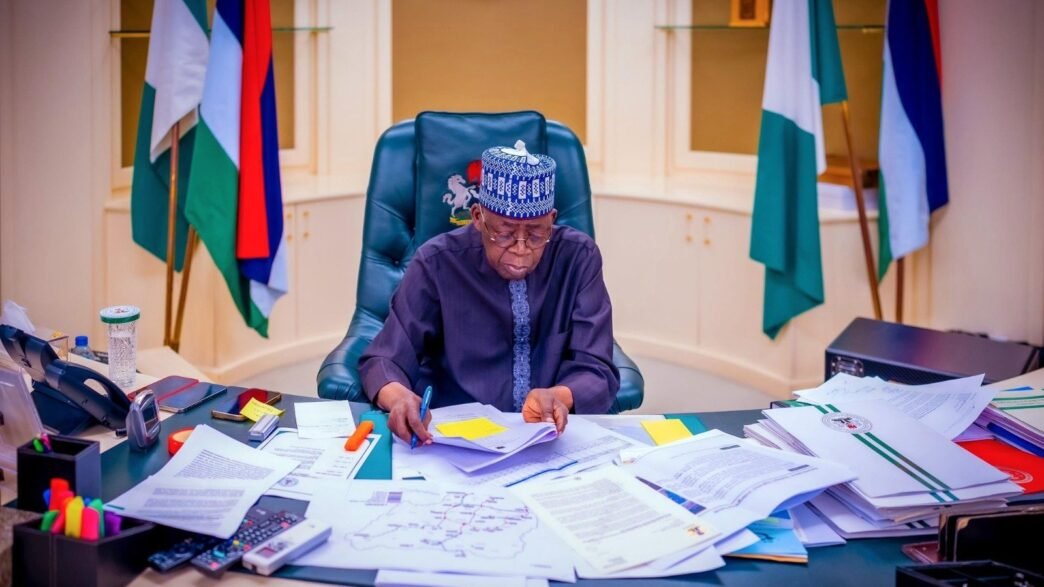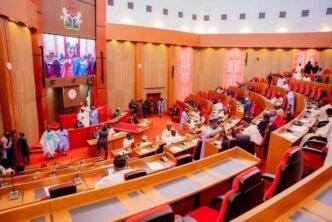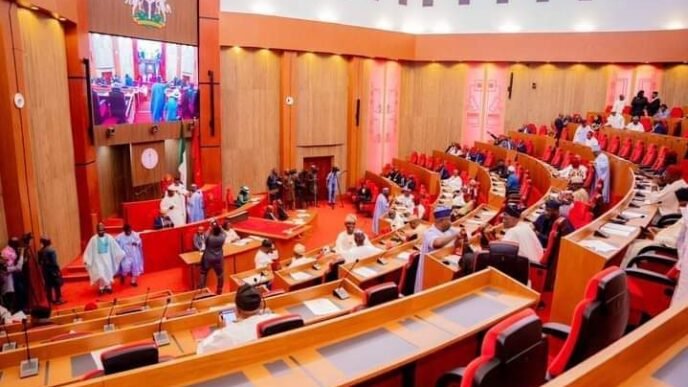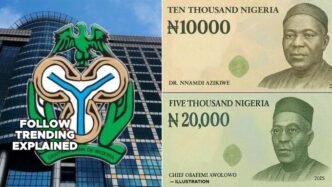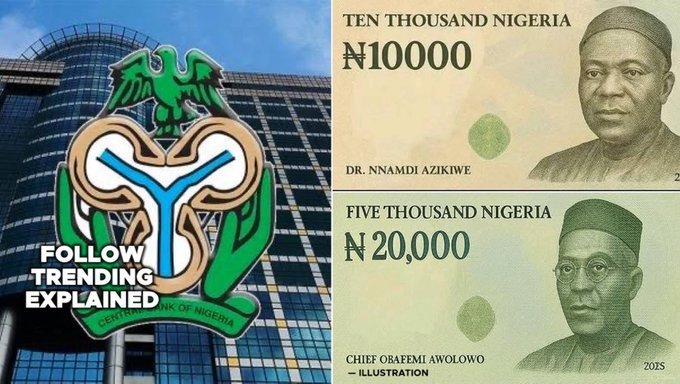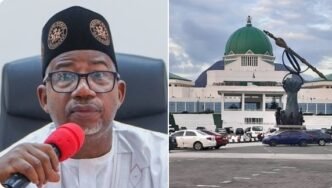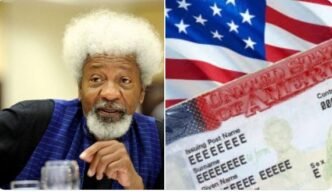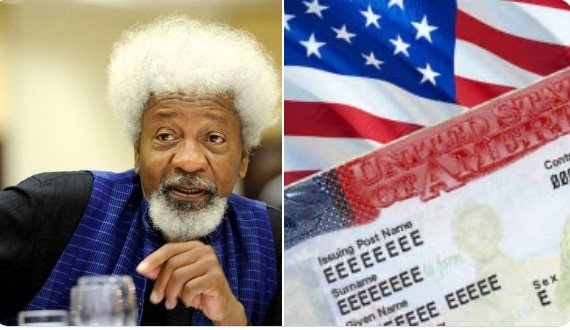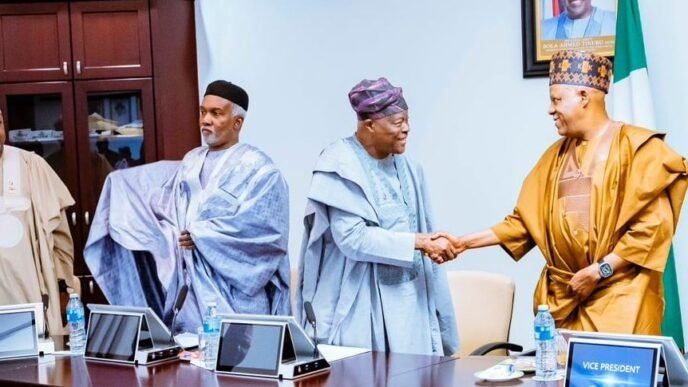President Bola Ahmed Tinubu has withdrawn the state pardon earlier granted to 175 convicts, including individuals convicted of kidnapping, drug trafficking, fraud, and other serious crimes. The decision comes barely three weeks after the initial list of pardoned persons was released on October 11, sparking widespread public criticism and national debate over the appropriateness of granting clemency to offenders of such grave offences.
The announcement was made on Wednesday, October 30, 2025, in a statement issued by the Special Adviser to the President on Information and Strategy, Bayo Onanuga, who confirmed that Tinubu had ordered a comprehensive review of the earlier decision made during the National Council of State meeting held on October 9, 2025.
President Orders Review of Clemency List
According to the Presidency, the decision to withdraw the controversial pardons followed consultations with members of the Council of State and other relevant stakeholders. The President, exercising his constitutional powers under Section 175 (1) and (2) of the 1999 Constitution (as amended), directed that the list be re-examined to ensure that the exercise of mercy is not extended to individuals convicted of heinous or violent crimes.
The statement read in part:
“Consequently, certain persons convicted of serious crimes such as kidnapping, drug-related offences, human trafficking, fraud, unlawful possession of firearms/arms dealing, etc., were deleted from the list. Others who had been hitherto pardoned in the old list had their sentences commuted.”
It added that the President’s decision was made “in the interest of justice and public confidence in the integrity of the state clemency process.”
Background to the Controversy
The initial pardon list, which was approved earlier this month by the National Council of State, had included over 300 convicts, some of whom were serving sentences for violent and drug-related crimes. The list was part of the government’s broader initiative to decongest correctional centres across the country and offer leniency to inmates who had demonstrated good conduct, old age, or serious health conditions.
However, when the list was made public on October 11, it generated strong backlash from civil society groups, human rights activists, legal experts, and ordinary Nigerians. Critics argued that granting state clemency to convicted kidnappers, human traffickers, and drug peddlers undermined the government’s anti-crime and anti-drug policies, especially at a time when the nation continues to battle rising insecurity and substance abuse.
Public anger was further fueled by reports that some of the pardoned individuals had been convicted of corruption and economic crimes, raising suspicions that the process may have been politicized or manipulated to favour certain interests.
Presidency Responds to Public Concerns
In response to the outrage, President Tinubu reportedly directed a panel of review to revisit the clemency process and assess each case on its individual merit. According to sources within the Presidency, the review panel included senior officials from the Ministry of Justice, the Office of the Attorney-General of the Federation, and the Nigerian Correctional Service.
The panel’s mandate was to ensure that only deserving inmates — such as those who had served substantial portions of their sentences, shown genuine remorse, or were of advanced age or terminally ill — benefit from presidential clemency.
The Presidency emphasized that the objective of the pardon exercise was never to reward criminality, but to show compassion in line with global standards for justice reform. However, it acknowledged that errors and oversight might have occurred in the compilation of the earlier list.
“The President is committed to maintaining a balance between mercy and justice. While the Constitution empowers him to exercise prerogative of mercy, it must be done in a manner that promotes public confidence and reinforces law and order,” the statement added.
Public Reaction to the Reversal
The withdrawal of the controversial pardons has been widely applauded by Nigerians, with many describing it as a bold and corrective step by the President. Civil rights organizations and anti-corruption advocates hailed the decision as an example of responsive leadership.
The Socio-Economic Rights and Accountability Project (SERAP), in a statement on Wednesday night, commended the President for heeding public concerns. The group said the reversal would help strengthen trust in government institutions and reaffirm Nigeria’s commitment to the rule of law.
Similarly, the Human Rights Writers Association of Nigeria (HURIWA) described the move as a “welcome correction,” saying it reflected the government’s readiness to listen to the voice of the people.
“The initial list was a moral and legal misstep. By withdrawing it, the President has demonstrated responsibility and alignment with public interest,” the group stated.
Legal and Constitutional Implications
Under Section 175(1) and (2) of the Nigerian Constitution, the President has the power to grant any person concerned with or convicted of an offence a pardon, reprieve, or remission of sentence. However, such powers are to be exercised only after consultation with the Council of State.
Legal experts note that while the President has full discretion in granting or revoking clemency, the process must be guided by transparency and fairness. Senior Advocate of Nigeria, Femi Falana, explained that Tinubu’s decision to review the list was consistent with constitutional provisions.
“The President is well within his rights to reverse or modify a clemency decision if it is discovered that it was granted in error or contrary to public interest,” Falana said. “The constitutional power of mercy is not absolute — it must be exercised judiciously and in good conscience.”
Broader Context: Justice Reform and Prison Decongestion
The Federal Government has, in recent years, undertaken several measures to reform Nigeria’s justice system and reduce overcrowding in correctional centres. Thousands of inmates — including awaiting-trial persons — remain in facilities across the country, many under poor conditions.
The clemency programme was designed to complement ongoing efforts at prison decongestion, judicial reforms, and restorative justice. However, the inclusion of violent and drug-related offenders on the earlier list raised questions about the vetting process and the balance between compassion and accountability.
Officials say the revised list will focus more on non-violent offenders, the elderly, persons with disabilities, and inmates with life-threatening illnesses who pose no danger to society.
Conclusion
President Bola Tinubu’s withdrawal of the earlier pardon granted to 175 convicts underscores his administration’s responsiveness to public sentiment and commitment to maintaining integrity in governance. By ordering a review of the clemency process, the President has signaled that the exercise of executive mercy must not compromise national security or public confidence in the justice system.
As the revised list is expected to be released in the coming weeks, Nigerians will be watching closely to see whether the process remains transparent, credible, and in line with the constitutional intent of clemency — to correct injustice, not condone it.
Ultimately, the decision marks a defining moment for the Tinubu administration’s justice and governance agenda, reinforcing the principle that mercy must never come at the expense of justice.


